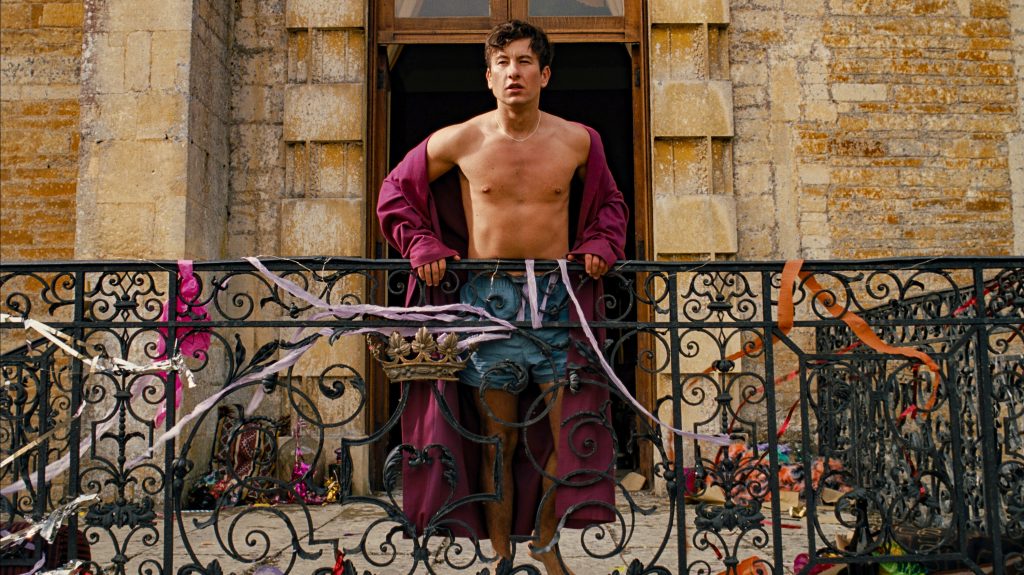
Filmmaker Emerald Fennell made a popcorn movie in the arthouse world. With her second feature film, Saltburn, Fennell goes big with aesthetic, laughs, and of course, music. Composer Anthony Willis helps sprinkle plenty of tasty, sometimes nasty syrup over Fennell’s candy-colored satirical thriller.
Willis not only helps build a mischievous atmosphere, but dives into the mysterious mind of Oliver Quick (Barry Keoghan). Not a pleasant place, to say the least, except for the fact that Oliver is often having loads of fun. As a result, Willis, too, gets to play around, musically, as Oliver navigates high-society, romance and a broken heart, and a triumphant climax.
Willis scored Fennell’s debut film, Promising Young Woman. Together, the two present deeply palpable protagonists. The composer recently spoke with Below the Line about creating music that captures the tortured souls at the heart of Fennell’s work.
[Note: This interview has been edited for clarity and length]
Below The Line: This score is often hilarious, partly because it sounds like a romantic comedy at times. Did you always want to lean into the playfulness, entertainment value as a composer?
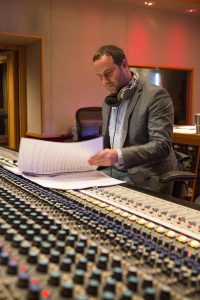
Anthony Willis: Yes. The satire is really important to Emerald and being quite straight with it and really leaning into the romance. She’s such a surprising filmmaker and gives you the opportunity to really do things in a way that I think people don’t expect as much, which is really fun.
I think rather than just kind of go, oh, let’s do really nefarious thrillery music, it was like, let’s lean into the romance of this. Let’s enjoy and bask in the fantasy that Oliver’s on.
BTL: How about the track “Shared Bathroom”? When you’ve seen the movie, that track name alone is funny.
Willis: It’s when he’s basically perving in on Felix having a bath. It was an interesting one to get right that because we wanted it to have almost this ritualistic, I’m watching the person that I worship, so she really wanted that sort of feeling. And so, there’s a rhythm to it that it’s inviting you in and there’s a longing to it, but also it’s kind of ritualistic. There’s low harp and a very broody cello.
BTL: It’s good foreshadowing, too, that piece of music.
Willis: What’s really important about that is when you actually see it in the bathroom, that’s the second time you hear a very similar piece to that. You first hear it when he’s seeing Oliver with Annabel at Oxford. And so, there’s this sense of looking in and wishing you’re a part of it, and then it happens again in the “Shared Bathroom,” and then it happens again once he’s managed to seduce Venetia.
Structurally at that moment, Oliver is taking control of that piece of music. He starts as an outsider, then he’s in the house and he’s not quite there yet. He doesn’t have Felix, but he’s literally in the room next door, and then he manages to get Venetia. So the piece has a different feeling and it gets lower and lower is it as it each time it’s a slightly lower iteration of it and it gets dark. You’re falling down this rabbit hole with Oliver.
BTL: For the more provocative scenes, how’d you and Emerald discuss the role of the score? When was music needed or not for the moments that play at an 11?
Willis: In terms of the overall spotting of the film, that was something Emerald really workshopped with Victoria, the editor, and she really wanted to keep things sparse in certain places then. So when the music came in, it really had a strong impact. I mean, there’s lots of scenes where, especially with the comedy, the performances are so strong. We really are setting up the world around them.
We’re setting up arriving at Saltburn and then being shown around Saltburn. But then when you meet the family, it was really about making the music really count where it is. There’s about just over 40 minutes of score in the film, and I think it’s a good amount.
Silence can be brilliant. One of my favorite silent moments, we did play around, we did talk about doing music was, this is a spoiler, but Venetia’s death in that you’ve had Felix’s death and you have lots of music in Felix’s death, discovering him in the cue that I did. As you are walking into the maze, then you see his body, and then the funeral service has that beautiful hymn. To make Venetia’s death feel different, I think it was such a clever choice of Emerald’s to actually go with nothing.
Some of the screenings I’ve been to, especially the big ones, it’s really cool because the audience essentially scores that moment. You just hear the sound is completely pulled out, and you just hear this gasp and everyone hears themselves.
I was just watching Oppenheimer, and I really like the way they pull the music just before the bomb goes off. Sometimes we’ve got these tools, and obviously using music is great, but also doing less can be really effective. And even within cues, Emerald had a really interesting idea, which was to, it’s more conventional to start with an instrument, add an instrument, add an instrument as an arrangement goes on, because it’s like telling a story.
BTL: How so?
Willis: You wake up in the morning, you start your day, you then have this and things accumulate. So often stories work like that, and so often music works that way. But Emerald actually had really interesting ideas about, well, hang on at this point, let’s drop out to just this, to articulate that thing. Whereas so often a director would say, “Oh, we need to articulate this, so can you add something to articulate that?” And obviously, it’s very effective to do that.
For example, in “The Maze,” it builds up, it builds up, builds up, and then it drops out to just a solo voice to articulate Felix found in the maze. Or when Oliver’s reading the newspaper and he sees that Richard E. Grant’s character has committed suicide, and we drop out to just the piano and harp, just having had all these other instruments. I really enjoyed that. I thought that was a really clever instinct of Emerald’s to reduce and be really specific about what you’re hearing.
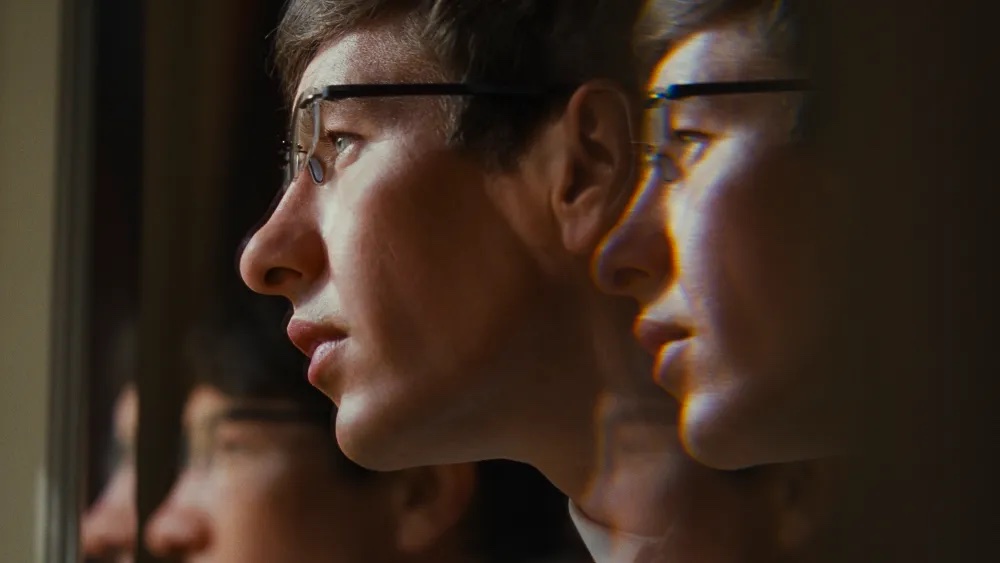
BTL: There’s the electronic song, I want to say it’s when the pig is roasted, but then you go gentle in your scoring. How’d you want contrasts to give whiplash to the audience?
Willis: Yeah, the pig cue was “Spit Roast.” Emerald wanted me to just do a source piece that was something in the background of the party and to get the party ramping up before loneliness kicks in, which is the piece that then takes us into the maze. And that one was interesting in that she said, “Oh, don’t worry. I’m going to have it really soft and out the way because Oliver and Farley are having this conversation.”
I went to the final mix of Pinewood, and it was much louder and more present than I had thought it would be. But then of course, transitions into Happy Birthday. So there’s the ominousness of that carries on under Happy Birthday, and of course, that party is the best and worst night of all of his life having this incredible party, but nobody even knows who he is.
These forgotten whose party it was. And then loneliness kicks in, and then, Emerald wanted me to transition the song into an immersive psychological score piece that Oliver’s getting lost in the maze, the drugs are kicking in, and he’s just kind of disoriented. And then comes the breakup, which is maybe the cue you’re referring to, which is a very soft, soft piano cue.
BTL: It’s jarring in good way. It’s really effective.
Willis: And generally Emerald mixes the music pretty loud and decisively, which is really, really a gift and a nice thing as a composer. The whole point of that breakup, of course, is to push our focus away from what Oliver’s really planning and make it this sad, tragic, heartfelt thing that he’s lost his way and he’s back to being lonely again after building this friendship. Then, so the next morning death kind of has this inevitability, but it’s also very, we’re not thinking, Hey, Oliver’s planned all this. Psychologically, that was important to get right.
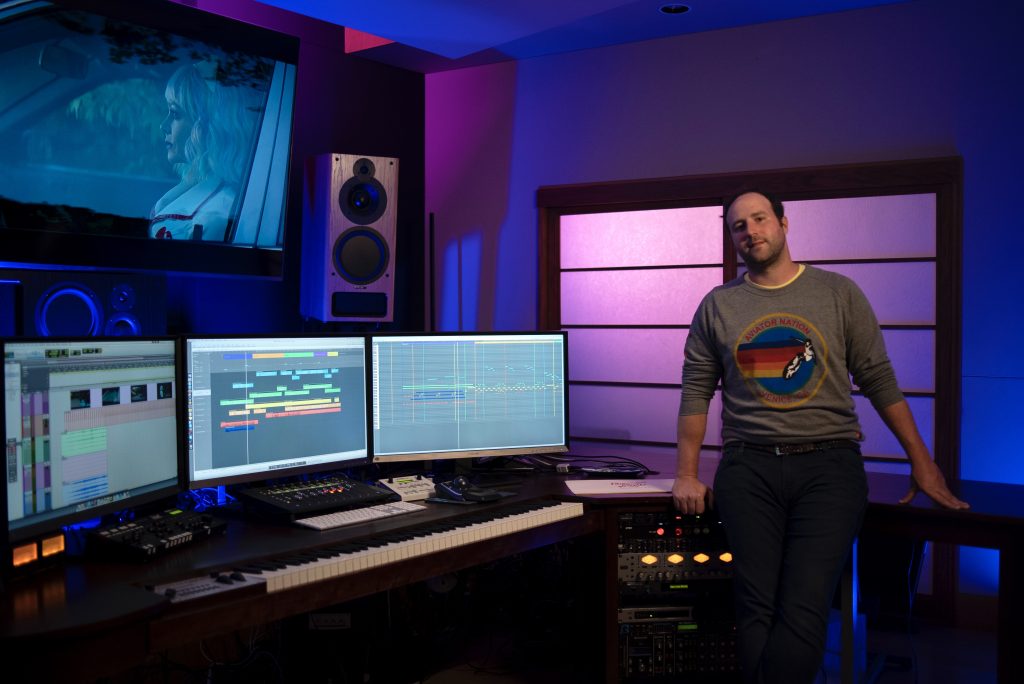
BTL: Emerald is fantastic at creating immersive points-of-view. For both Promising Young Woman and Saltburn, any similarities in scoring these sharply defined protagonists?
Willis: Yeah, similar in that very much Promising Young Woman, the score was all Cassie. Well, it was all Cassie and Nina. It was very much like we were trying to bring her dead friend’s ghost into the movie because Cassie is living, she’s living in purgatory. So anyway, she’s not really her, she’s her haunted by her friend and what she’s lost. The central thematic hook was Cassie and Nina’s theme.
And so, every cue was connected pretty much with this same theme, whether it was really subverted or whether it was done in a more full-on melodic way, even the romance. And that was one of the things that everyone really liked about the score was that the romance, and then it all unravels after the reveal about Ryan (Bo Burnham). And for Oliver, it’s the same. It’s his story and it’s his fantasy. And for this, it was all about a trick. He’s trying to earn his way in this classical world, in this opulent world, so I have a motif for him, and that basically is in every cue, and it’s kind of this slightly posh thing that he’s trying to inhabit. And by the end of the movie, of course, it’s done for all bells and whistles.
What I really like about the kind of language is it has a very mathematical quality to it. He was calculating everything the whole time. And so, when you watch the movie again, you can see it’s there, but it’s done in a lonely, slow, solitary way. But he’s sort of acting the whole time he’s putting on a front. It was sort of this idea of being hidden in plain sight was the thing for Oliver, but same approach in that it’s one character’s journey and that there’s a thematic shape that connects the whole time. I like to do that. It gives it a sense of logic.
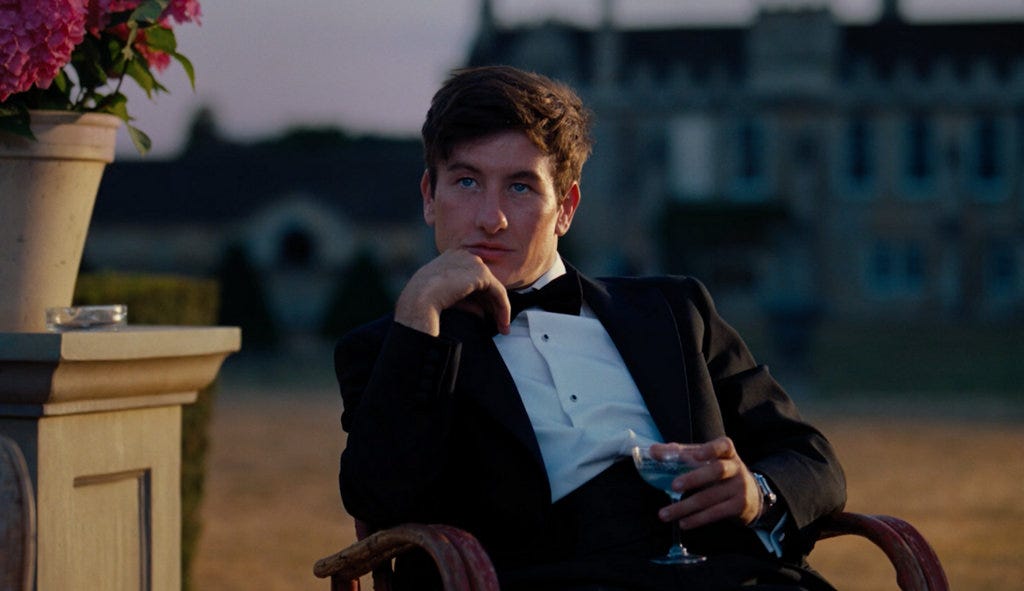
BTL: How big did you want to go at the end, musically, given how wild Emerald goes with that ending? She’s not shy with her endings.
Willis: It’s really about the explosiveness of the final organ chords of the climax. I mean, Emerald described it as a climax, as a final release. And what was important is the movie starts with this kind of reference to this coronation anthem, and then we come back to that right at the end. So everything transitions, all the calculation and all the love and the emotion of it all turns into this very primal iteration of this coronation anthem, and which then climaxes with these big organ chords.
Even at the mix, she had the sound team lower my synth and even sort of distort it a bit and get it to shape, get the speakers to vibrate in that lightly unhinged, out of control way because it’s what she wanted. She wanted that feeling that it’s all going to shit, but also all coming together at the same time. So yeah, you’re right. She definitely goes big with her endings, and it was really fun.
BTL: I imagine you and Emerald take it on project at a time, but do you both discuss potential future collaborations?
Willis: I think it will really depend on what she wants to do with her next films. But absolutely, we’ve talked about that a little bit and she’s just so wonderful to work with. I would love to do that, and it depends what voice is right for her movie in the future. What’s really fun is that she pushes me to do lots of different things, and I think she feels confident that she’ll get something interesting.
She’s such an amazing director that she just gets really interesting results from all of her department heads. She’s exceptionally gifted and loves music, and she just brings a fun to everything as well. She comes into it with a lot of fun and laughter and joy.
Saltburn is now available to stream on Prime.





